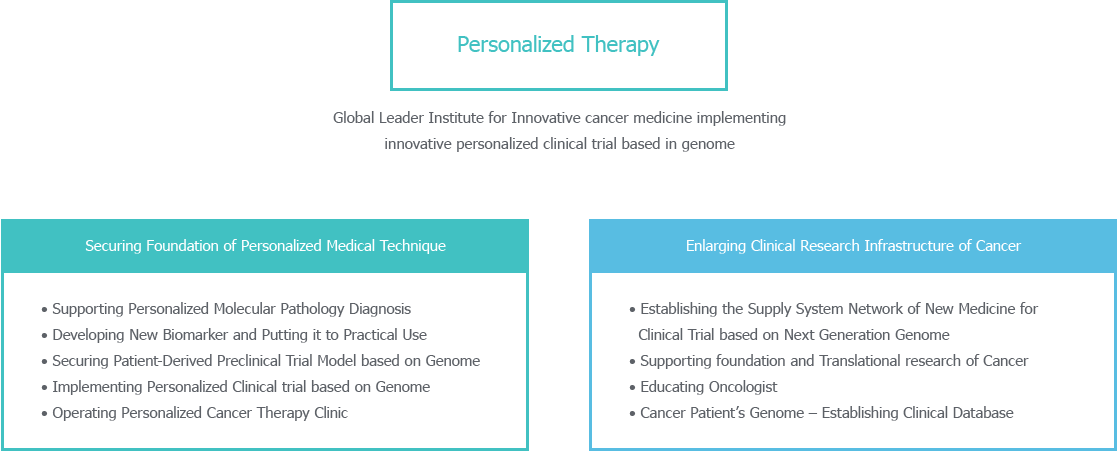
Institute for Innovative Cancer Medicine was established by the launch of Cancer Center in 2008 and innovative research & development of cancer in April 2013.
We try to increase survival rate of cancer so that Samsung Comprehensive Cancer Center can be one of the best Cancer Center in the world. Institute for Innovative Cancer Medicine is divided into 3 centers and 1 data team such as Center of Novel Experimental Therapeutics(NEXT), Center of Clinical and Translational Cancer Research(CTCR), Center of Cancer Companion Diagnosis(CTCR) and 1 data team called Cancer Data and Epidemiology Team.
We are working on comprehensive tasks not only diagnosis, clinical/preclinical trials but data management. In addition, various researches and developments are now in the progress such things as development of postoperative recurrence prediction model and biomarker, Research and support of personalized therapy connecting to medical process, and development of personalized diagnostic kit in accordance with gene expression and mutation etc. In 2014, we took another step towards personalized therapy via clinical trial such as application of personalized targeted therapy based on genome analysis of patient with metastatic gastric cancer for the first time in South Korea. Moreover, we have an opportunity to make more and more patients receive next generation therapy through the partnership with pharmaceutical company. We try to do our best to be a global leader in the field of cancer through innovative diagnosis of cancer and research of therapy within 2020.
